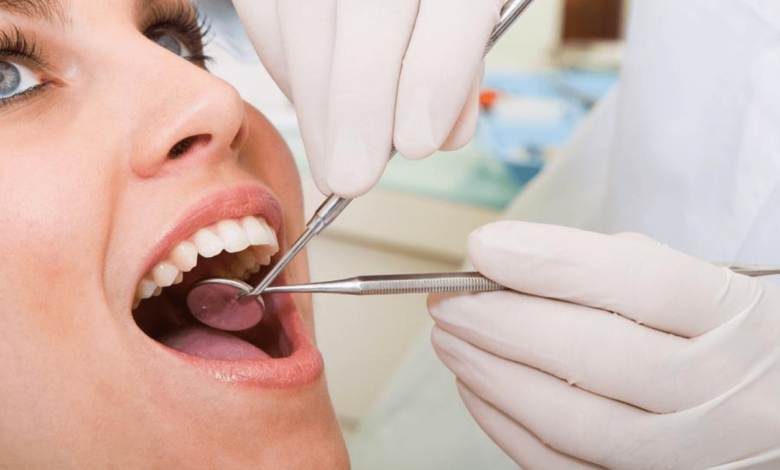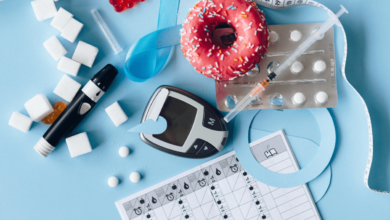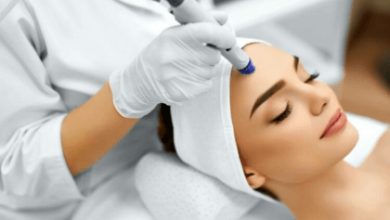The Importance of Regular Teeth Cleanings: What You Need to Know

Maintaining oral health goes beyond daily brushing and flossing—regular professional teeth cleanings are crucial for keeping your teeth and gums healthy. These cleanings help remove plaque and tartar that you can’t reach with regular brushing alone, and they allow your dentist to detect early signs of dental problems like cavities or gum disease before they worsen.
Professional cleanings are part of a proactive approach to oral health. Dental hygienists use specialized tools to remove hardened plaque (tartar) from your teeth, preventing issues like gum disease, which can develop if tartar is left untreated. This thorough cleaning is essential to maintaining good oral hygiene, reducing the risk of tooth decay, and preventing future dental problems.
What Happens During a Cleaning?
A typical cleaning starts with a comprehensive examination of your teeth and gums. Your dental hygienist will look for signs of inflammation, gum disease, or other problems that may need attention. After this, they’ll use tools to scrape away plaque and tartar, especially from hard-to-reach places like between your teeth and along the gumline.
The cleaning process also includes polishing your teeth to remove surface stains and smooth out the tooth enamel, making it harder for bacteria to stick to your teeth in the future. Some appointments may finish with a fluoride treatment, which strengthens your enamel and helps protect your teeth from cavities. This multi-step process ensures your teeth are thoroughly cleaned and protected until your next visit.
How Often Should You Schedule Cleanings?
Most dental professionals recommend getting your teeth cleaned every six months. However, your dentist may suggest more frequent visits if you have certain conditions, such as gum disease or a history of tooth decay. These regular visits are key to preventing long-term dental issues and ensuring that any problems are caught early on.
If you have dental restorations, such as implants or crowns, or if you’re prone to plaque buildup, more frequent cleanings may be necessary. Regular professional cleanings help ensure that your teeth remain healthy and prevent more serious dental conditions from developing over time.
Benefits of Professional Teeth Cleanings
Professional cleanings do more than just keep your smile bright—they play a vital role in your overall health. Removing plaque and tartar reduces the risk of cavities and gum disease, both of which can lead to more severe health issues if left untreated. Gum disease, for example, has been linked to other health conditions, such as heart disease and diabetes. By keeping your gums healthy, you help reduce the risk of these complications.
Additionally, routine cleanings help your dentist catch potential problems early on. Detecting cavities or signs of gum disease early can lead to less invasive and less expensive treatments. In the long run, investing time in regular cleanings can save you from more complex dental work, ensuring a healthier, more comfortable smile.
How to Maintain Oral Hygiene Between Visits
While professional cleanings are essential, maintaining a solid oral hygiene routine at home is equally important. Brushing your teeth twice a day with fluoride toothpaste and flossing daily are the foundations of good dental health. These habits help remove food particles and plaque before they can harden into tartar. Using mouthwash can also reduce the amount of bacteria in your mouth and keep your breath fresh.
Additionally, paying attention to your diet can make a significant difference in your oral health. Foods high in sugar or acid can contribute to enamel erosion and cavities. Drinking water, eating a balanced diet, and avoiding sugary snacks between meals can help maintain the health of your teeth and gums.
Read also: Orthodontics: Straightening Smiles for a Lifetime of Confidence
The Consequences of Skipping Cleanings
Skipping your regular cleanings can lead to the development of serious dental issues. Plaque left on your teeth eventually hardens into tartar, which irritates the gums and leads to inflammation. This is the early stage of gum disease, known as gingivitis. If left untreated, gingivitis can develop into periodontitis, a more severe form of gum disease that can result in tooth loss and damage to the bone supporting your teeth.
In addition to gum disease, skipping cleanings can allow cavities to develop unnoticed. By the time you feel pain or discomfort, the cavity may have progressed to the point where it requires more invasive treatment, such as a root canal. Regular dental checkups can help prevent these issues and keep your smile healthy and pain-free.
Regular teeth cleanings are one of the best ways to maintain a healthy smile and prevent long-term dental issues. At Two Lakes Dental, our team is committed to helping you achieve and maintain excellent oral health through comprehensive cleaning and personalized care.




